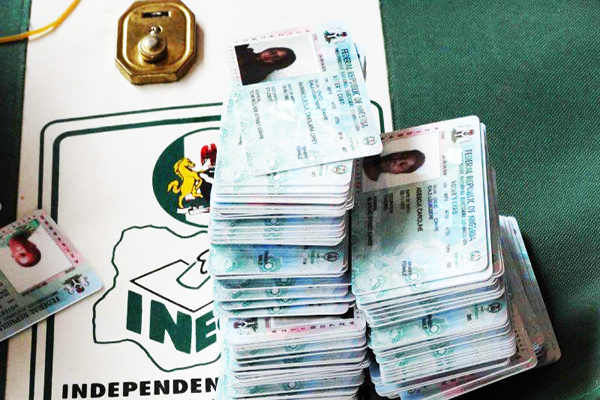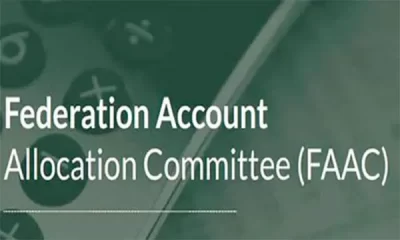COVER
PDP Shops for Damagum’s Replacement

By Mike Odiakose, Abuja
Peoples Democratic Party (PDP) Governors Forum has mandated the Plateau State governor, Caleb Mutfwang to organize leaders of the party in North Central Zone to meet and nominate a substantive National Chairman for the party.
This was one of the key decisions taken by PDP Governors during a virtual meeting on Tuesday before the Ondo State governorship rally to lay to rest the leadership crisis rocking the party.
At an earlier meeting on Monday the Acting National Chairman, Umar Damagum was given soft landing to continue as Acting National Chairman on the understanding that he will quit as soon as the National Executive Committee (NEC) agrees on substantive National Chairman.
Other NWC members that were suspended last Friday by the two warring NWC factions of the party were also given leeway to return to office and maintain status quo.
According to a source at the PDP Governors Forum meeting, Damagum was directed to formally call for a NEC meeting on Oct. 24 as earlier agreed by various organs and stakeholders of the party.
It was Damagum’s reluctance to call for a NEC meeting that eventually culminated in the showdown at the NWC meeting last Thursday.
The Plateau State governor, who is the leader of the PDP in the North Central Zone is said to have agreed to lead the search for the new national chairman to complete the tenure of Dr Iyorcha Ayu.
Mutfwang was hitherto among the minority PDP Governors that were in support of Damagum’s continues stay in office as Acting National Chairman.
Others that initially opposed replacement of Damagum are Seyi Makinde of Oyo State, Ahmadu Fintiri of Adamawa State and Agbu Kefas of Taraba State.
The choice of the North Central Zone is expected to be presented to NEC on Oct. 24 by the Plateau State governor on behalf of the zone for ratification.
The Daily Asset reliably gathered that PDP leaders and governors are also considering suggestions to push aside all members of the present NWC once a new National Chairman emerged and inaugurate a National Caretaker Committee.
Those pushing for a National Caretaker Committee argue that the present NWC members, after the recent suspensions and counter-suspensions, cannot work as a united team because of bad blood and mutual suspicion.The pro-National Caretaker Committee leaders further argue that the incoming National Chairman from North Central may be overwhelmed if he inherits an already divided NWC.
COVER
NUPRC Sets 2026 Oil Output Target at 2.5m Barrels Daily

The Nigerian Upstream Petroleum Regulatory Commission (NUPRC) said the country is on track to achieve a crude oil production target of 2.5 million barrels per day by 2026.NUPRC Chief Executive, Gbenga Komolafe, said this yesterday in Abuja during the 4th PENGASSAN and Labour Summit (PEALS 2025).
The summit was themed “Building a Resilient Oil and Gas Sector in Nigeria: Advancing HSE, ESG, Investment and Incremental Production. ”He noted that Nigeria’s current oil output had increased from 1.46 million barrels per day in Oct. 2024 to 1.8 million barrels per day, with momentum building toward the 2026 target.He credited the recent Presidential Executive Orders under the Petroleum Industry Act (PIA) 2021 for shortening contracting cycles, reducing investment risks, and encouraging upstream projects.Komolafe highlighted the commission’s efforts in deepwater exploration, reactivation of dormant fields, and adoption of enhanced recovery techniques.He also referenced a recent Deepwater Technical Stakeholders’ Workshop, which focused on unlocking more than 810,000 barrels per day in new production.He outlined a cluster development strategy aimed at reducing costs, sharing infrastructure, and strengthening investor confidence.On sustainability, Komolafe said the NUPRC’s Upstream Decarbonisation Framework targeted the elimination of routine gas flaring by 2030 and a 60 per cent reduction in methane emissions by 2031.Nigeria’s 210 trillion cubic feet of gas reserves, he added, would play a key role in the energy transition.He called for stronger collaboration between government, industry, and labour, stressing that resilience in the sector must be a deliberate effort.Managing Director of ExxonMobil, Jagie Baxi identified four critical factors for boosting Nigeria’s oil production: geology, cost, risk, and reward.He warned that in spite of Nigeria’s vast hydrocarbon resources, natural production decline, especially in deepwater operations, remained a challenge, with operators losing about 15% per cent output annually.Baxi noted that high drilling and operational costs in Nigeria deterred fresh investment.He stressed the need for risk-adjusted incentives to retain investor interest and urged improved collaboration among stakeholders to resolve disputes and revive underperforming fields. (NAN)COVER
Voter Registration:Northern CAN Mobilises Christians for Turn Out

By David Torough, Abuja
The Christian Association of Nigeria (CAN) in the 19 Northern states and the Federal Capital Territory (FCT) has urged Christians to seize the ongoing Continuous Voter Registration (CVR) exercise by the Independent National Electoral Commission (INEC) as an opportunity to prepare for active participation in the 2027 general elections.
In a statement by its Chairman, Rev. Yakubu Pam, Northern CAN described voter registration as both “timely and crucial,” stressing that obtaining a Permanent Voter’s Card (PVC) remains the gateway to effective participation in the democratic process. “As responsible citizens and followers of Christ, we have a moral and civic duty to contribute meaningfully to the future of our nation. Democracy thrives when the voices of the people are heard. We must not sit on the sidelines,” Rev. Pam stated.He called on Christians of voting age, especially first-time voters, those who have relocated, or those yet to register, to turn out en masse for the exercise, adding that silence or indifference only empowers “the wrong forces to take control of the destiny of our nation.”The statement further urged churches, Christian organisations and community leaders across the North to mobilise their members for the registration, emphasising that the 2027 elections will be a defining moment for Nigeria.Meanwhile, INEC has clarified that the approved voting age under the Electoral Act remains 18, stressing that persons below that age cannot register even if they would have turned 18 by 2027.At separate engagements in Yobe and Sokoto states, Resident Electoral Commissioners (RECs) assured citizens that the CVR will be conducted smoothly, with security agencies fully mobilised to provide safety in identified flashpoints.INEC also restated that both online and physical registration will run for one year, targeting new voters, those with invalid PVCs, and citizens seeking transfers or corrections of details, while warning against multiple registrations.COVER
Nigeria’s External Reserves Hit $41bn, Highest in 44 Months

By David Torough, Abuja
Nigeria’s external reserves have surged to a four-year high of over $41 billion, a development the Presidency has hailed as a major economic milestone while taking a swipe at opposition leaders; Atiku Abubakar, Peter Obi and Nasir El-Rufai.According to the Central Bank of Nigeria (CBN), the gross reserves stood at $41,001,830,139.
96 as of August 19, 2025, with net reserves at $40. 3 billion, a level last seen in 2021, 44 months ago. Presidential spokesman Bayo Onanuga in a post on his official X handle yesterday described the achievement as evidence of “Prudent economic management” under President Bola Tinubu, adding that the increase was attained despite falling global oil prices.“The latest milestone was reached without massive inflows from oil sales. It’s all about the prudent management of the economy by President Bola Tinubu,” Onanuga wrote on X, noting that opposition leaders were unlikely to acknowledge the progress.He accused Atiku, Obi, El-Rufai and Babachir Lawal of being “blinded” by what he called a “doomed campaign to discredit Tinubu’s government.”The rise in reserves has been attributed to increased foreign exchange inflows, modest crude oil output gains, and recent CBN reforms, including the unification of exchange rate windows that boosted investor confidence.According to a report, the reserves’ strength now provides cover for more than 10 months of import needs, bolstering Nigeria’s foreign liquidity position.



















